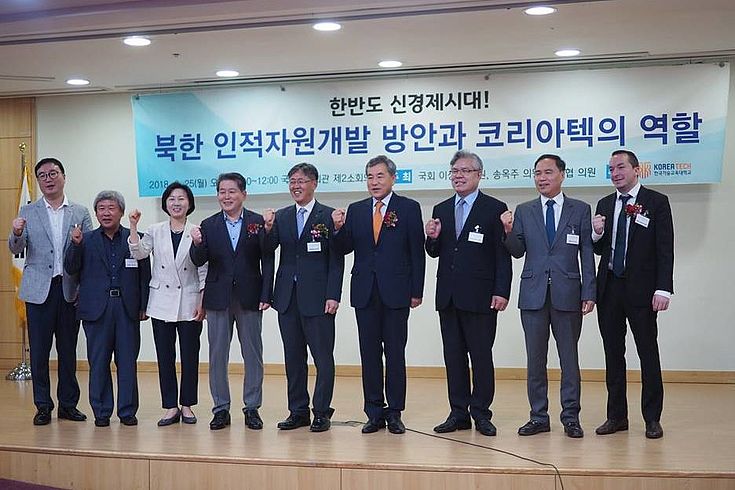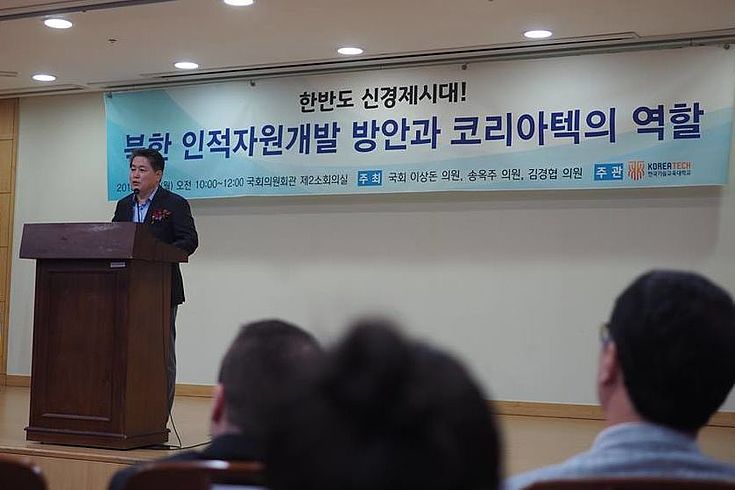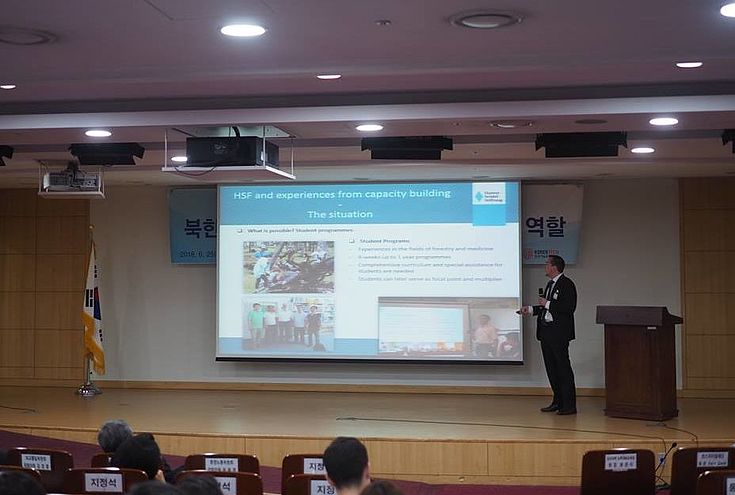International Conference
Human Resource Development and Capacity Building in North Korea
The Participants of the International Conference
HSS
New Economy
Specifically, Cho Bong Hyun from IBK Economic Research Institute provided insight into the meaning and direction of the Korean new economy by suggesting that the “new economy” may entail an end to the separated markets in North and South Korea. He explained that the routes surrounding the Yellow Sea are crucial for the development of economic linkage among North Korean cities to increase manufacturing production.
HSS
Experiences from German Unification for Korea
Dr. Kang Il Kyu from KRIVET gave a comparison of the human resource development of East Germany before and after the unification in North Korea as well as information about job training and education in the DPRK. He also mentioned the German scenario of economic growth after unification and related it to the potential economic shifts in Korea in the future. Kim Min Ho from KIDMAC spoke about the status and future tasks of educational training for workers in the Kaesong Industrial Complex as he detailed training programs of manufacturing enterprises in the industrial complex.
Felix Glenk, project manager for DPRK at Hanns Seidel Foundation, presenting his experiences from fieldwork
HSS
Hanns Seidel Foundation supports Capacity Building in DPRK
Felix Glenk, Project Manager for the DPRK of HSF Korea, furthered his opinion regarding the development of human resources in North Korea. He gave a presentation about the work of the foundation concerning reforestation and wetland conservation executed in areas such as Sangseo-ri. Both projects highlight capacity building, and Mr. Glenk shared experiences learned from fieldworks in North Korea and emphasized potential for cooperation with South Korea. Lastly, Yoo Kwan Sik from KOREATECH illustrated his institution’s role in North Korea by explicating its focus on vocational training and educational assistance. He claimed that one of KOREATECH’s main activities is analyzing the enterprises and atmosphere related to education to systemically develop professionals and teachers in the DPRK.



